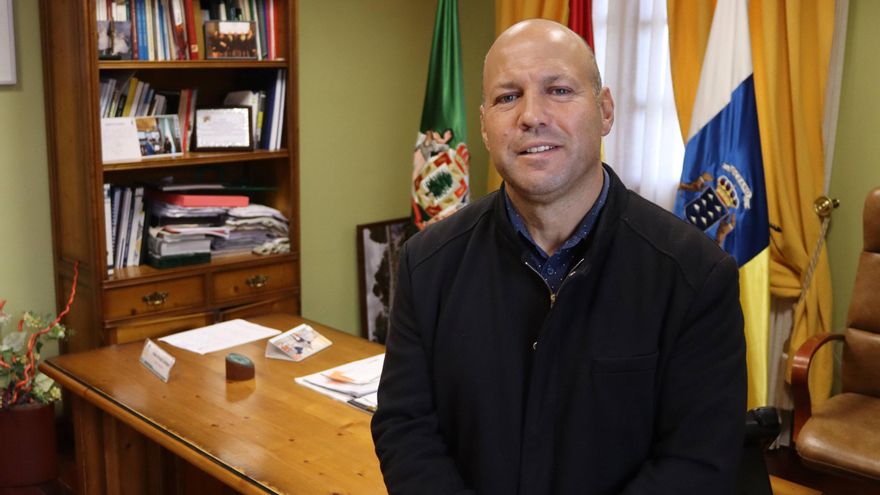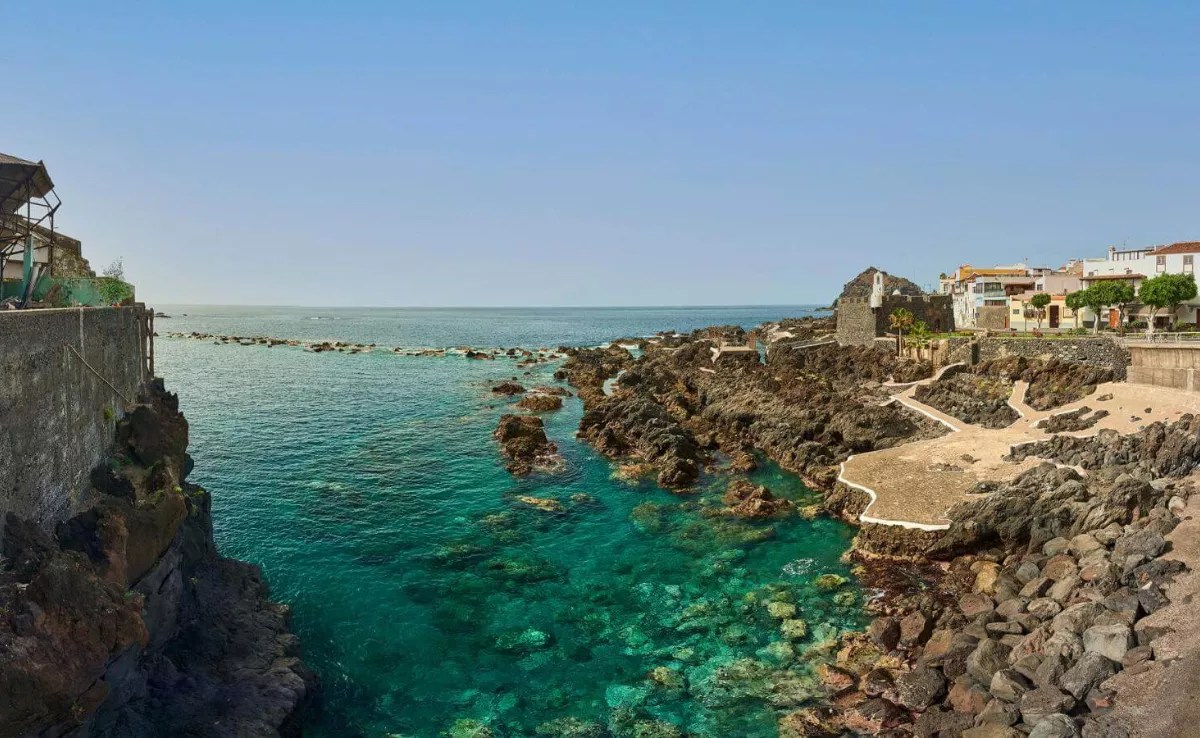
La Guancha has always maintained a close relationship with the primary sector, local products, and traditions. Are these areas in good shape currently?
[–>
Yes, absolutely. The identity of our municipality would not be understood without those characteristics linked to agriculture, the wine sector, and the products that originate and are distributed from our territory. The Farmer’s Market, along with the wineries Viña Zanata, Viñatigo, and Borja Pérez, the brand Zum Zum Miel, and Naturjube are the best references we have to publicly confirm this inseparable relationship between the local economy and the fruits of our land, with flavours of extraordinary quality. Regarding traditions, we boast a wide range of traditional crafts that form an integral part of our history, with pottery, basketry, and lacework as main components. The La Guancha Craft Centre is currently one of the town’s great treasures, with an extensive display of handicrafts and workshops for their conservation and promotion.
What is your assessment of the current situation in the municipality?
[–>
Since last year, we have been grappling with a certain sense of paralysis, stemming from the multiple issues we have faced regarding the design and implementation of much-needed projects for our residents. However, the reality is quite different. For the first time, we are governing under an agreement (PP-PSOE), a pact between trustworthy individuals that is in excellent health, with a great harmony and many projects to complete or promote in the years ahead. In recent months, we have focused primarily on stabilising the municipal staff. So far, about 23 civil servants out of almost 60 have obtained the long-awaited recognition of their positions. I dare say we are one of the municipalities in Canarias that has achieved the highest number of staff stabilisations during this extraordinary period. It has required significant internal work, with various departments of the City Council dedicating many hours, almost exclusively, to this task. We have the remainder of the year to complete this objective linked to the human resources of the administration I preside over.
Is the reopening of El Roque Road still a priority for the local Government?
[–>
Absolutely. A significant portion of our investment and infrastructure efforts are focused on this issue, which arose following the fall of a large rock on the road. Since then, we have kept it closed for obvious reasons: ensuring the safety and physical well-being of the population, beyond reckless attitudes or pressures from certain sectors or political parties. We are awaiting legal reports to approve the specifications, bring them to the Government Board, and commence the tender process, expected to begin in March. We are in the final stages of the procedure, confident in a reopening that seems increasingly imminent, despite the administrative complexities our City Council is currently facing. We plan to allocate around 500,000 Euros from our cash surplus for the project’s direction and execution, although I trust that the Cabildo will cover a significant portion of that amount.
The swimming pool is another outstanding issue…
[–>
It is another priority on our agenda. We have the budget allocation that the Cabildo de Tenerife granted us last year, around 800,000 Euros, and now we are waiting to also tender the external urbanization of the building, which houses the pool and all surrounding facilities and workspaces. I am confident that this tender will also be activated before the summer.
What does the Water Network Efficiency Improvement project entail?
[–>
It involves several actions, driven by a budget of 200,000 Euros provided by the island’s Institution through the Cooperation Area, to eliminate the three current load breakages we are experiencing due to the terrain’s orography, non-compliance with health regulations, and the hindrance to better study our networks. We aim to replace these open systems with pressure-reducing valves, equipped with remote control and accompanied by height meters. We are transforming our network, digitalising it and making it more accessible and manageable to respond effectively to potential breaks or other issues, minimising leaks and the periodic restrictions we endure, though we have not had to activate any during the term in relation to water consumption.
What happened with the Auditorium project?
[–>
It has been on hold since April of last year due to issues and disagreements between the Joint Venture and the works’ management. This Council had to request a modification of the initial project to ensure the work’s continuity, which has required an additional one million Euros that we had to contribute, utilising our surplus. With this, we are talking about a building that will cost us around 6.2 million, although this amount is not final as the upcoming price adjustments will necessitate further adaptation of the final budget. We are now awaiting the acceptance of the approved modification from the awarded company. If accepted, construction will resume shortly; otherwise, we will have to suspend the contract.
Improving the Streets of Las Cucharas
We committed to building the plaza and cultural center in the neighbourhood, and we recently achieved it. Our next goal is to enhance the condition of the roads in this area of the municipality, with a budget allocation of around €250,000 already secured. I am well aware of their significant deterioration and will make every effort to ensure that the tender is carried out within this year.
Concerns about the Water Situation in La Guancha
Experience tells me that we must be cautious, especially when it comes to water in the municipality. The evolution of consumption and our reservoir levels is becoming worrying, even though we are in the middle of winter. We are gradually losing volume. If this trend continues, and if the rain doesn’t come, we will find ourselves without the necessary capacity to provide an effective response to the population. This situation collides with the reality faced by our farmers, with water shortages in the reservoirs, almost empty at this time of the year, and no adequate response from BALTEN. Faced with this scenario, they are forced to use drinking water to irrigate their crops, worsening the already dire situation of water scarcity for the people living here. This strains our water system, and I fear that unless effective mechanisms and policies are implemented by the Cabildo and the Government of the Canary Islands, we will be facing a summer with many negative headlines.















